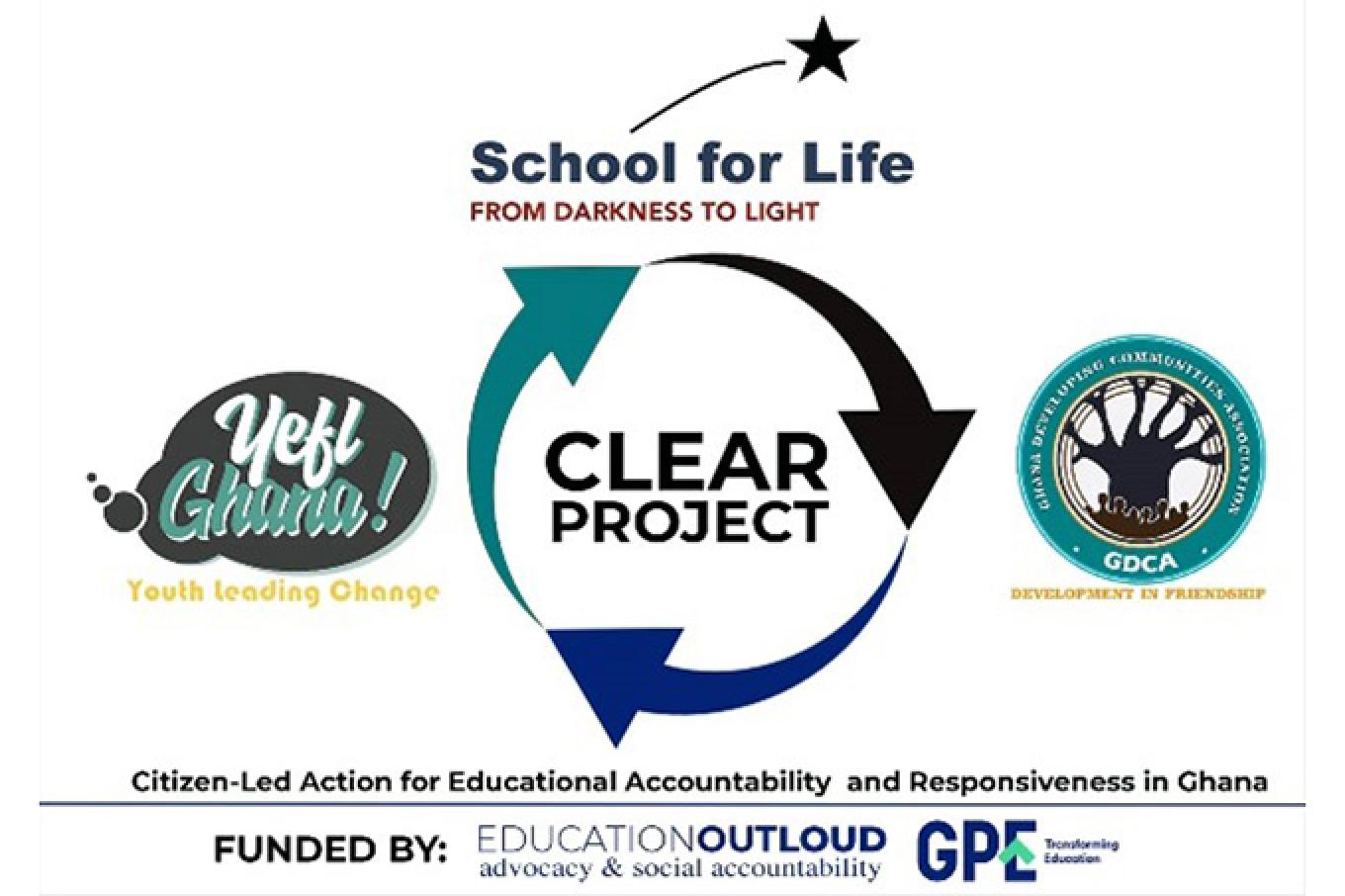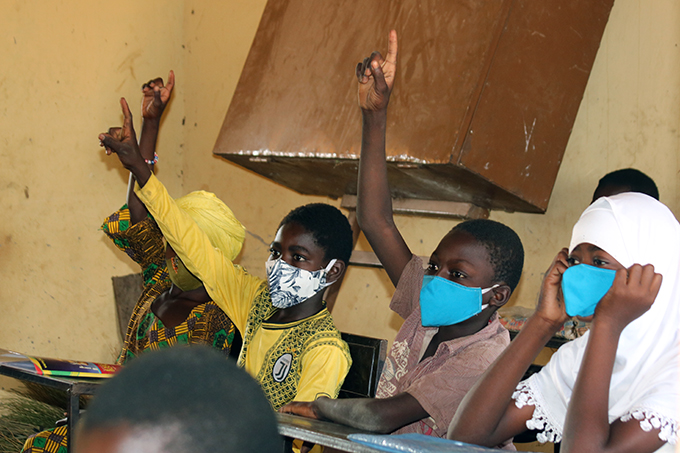
Citizen-led Action for Educational Accountability and Responsiveness (CLEAR)
Children, especially girls, in remote rural parts of Ghana suffer from inequality in basic education. This affects access to education with the biggest numbers of out-of-school children found here; and also affects quality resulting in poor educational outcomes because of inadequate public education.
This situation is particulary pronounced in Northern Ghana. In the Northern regions of Ghana, pupils have only 35 per cent of the trained teachers they need; about 30 per cent of children have no school nearby; 20 per cent will not enter school; only two thirds of the entrants reach the end of primary education; and of those who finish primary level, less than one third pass the final exit examination.
The regions with lower overall pass rates have the highest levels of gender inequality. (Blampied et tal 2018; 2018 UNDP report on Northern Ghana).This highlights the level of inequality in the provision of education and access to quality basic education in Ghana
There is weak transparency and bottom-,up accountability. Citizens generally lack relevant information about the education policy framework and the education service delivery system to be able to engage effectively with education authorities and service providers. Information is largely not produced and disseminated in a language and via tools that are accessible to local citizens depriving them of the opportunity to really understand the education system, policies, programmes and plans and hold relevant authorities accountable at all levels.
In addition, there exist weak mechanism for accountability and weak and limited spaces of citizens participation and engagement with education authorities and service providers. The main objective of the project is to contribute to equitable access to quality basic education for children in deprived areas of Ghana by strengthening transparency and accountability. The target beneficiaires of this intervention are children (especially girls) in deprived areas of Ghana, especially Northern Ghana who suffer a great deal of inequities in terms of access to quality basic education.
The change pathway of the project is that:
- If citizens in deprived districts are mobilized to understand their rights and entitlements regarding education;
- If their capacity is built to monitor educational delivery using social accountability processes, and make their voices heard;
- If Northern-Ghana CSOs strengthen alliances and networks to engage in national dialogue on equity in education using evidence generated by the citizens groups and other research, then access to quality, gender responsive and inclusive education will be achieved in Ghana.
By the end of the project, inequality in basic education is documented by citizens, who hold district authorities accountable and make their voices heard. Northern CSOs have a more influential role and stronger voice in national policy dialogue and make valuable contributions to alliances, networks and learning platforms leading to more equity in education. Collaboration with the media will be used to push the issues of concern from the local to the national level.
